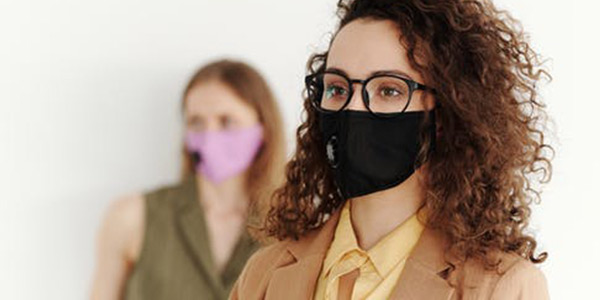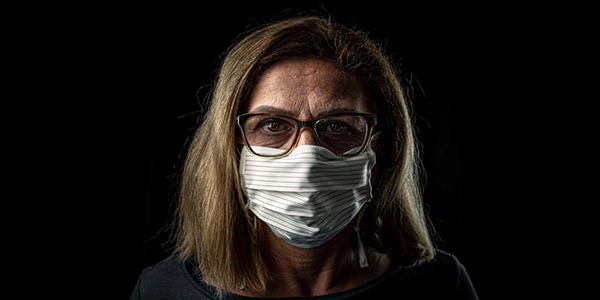1:30min

Image, Pexels
By Helen Carter
Journalist
Optometry Australia has cautioned about a study which suggests wearing glasses for at least eight hours a day may reduce the risk of coronavirus infection, saying more studies are needed to understand if there is a link, and what the link is.
The study, published online in Jama Ophthalmology this week, was of 276 COVID-19 patients in hospital in China. It found that 5.8 per cent wore glasses for myopia, much lower than the average for the local population of about 31.5 per cent.
Researchers did not include another 14 hospital patients with presbyopia in their study as they may not have worn glasses for more than eight hours a day.
The authors concluded that those wearing glasses for more than eight hours a day may be less susceptible to COVID-19 and hypothesized this could be because spectacle wearers touch their eyes less frequently than the ten times on average an hour that non-spectacle wearers touch their eyes.
‘Our main finding was that patients with COVID-19 who wear eyeglasses for an extended period over eight hours a day every day were relatively uncommon, which could be preliminary evidence that daily wearers of eyeglasses are less susceptible to COVID-19,’ they wrote. ‘For daily wearers of eyeglasses, who usually wear eyeglasses on social occasions, wearing eyeglasses may become a protective factor, reducing the risk of virus transfer to the eyes and leading to long-term daily wearers of eyeglasses being rarely infected with COVID-19.’
However, Optometry Australia Chief Clinical Officer Luke Arundel said it was important to remain aware of the limitations of this single epidemiologic study and that more studies were needed to understand if there is a link, what the link is, and to provide additional evidence.
‘The study had a small sample size and there was no statistical analysis ran to prove there is statistical significance,’ he said.
‘While face shields/eye protection is crucial for health workers, this study does not constitute health advice to say that people should wear glasses to protect from coronavirus.
‘Also, the evidence that COVID can be “caught” through the eyes is still under debate. An Australian paper published in Clinical and Experimental Optometry in May, 2020 which conducted a literature review on the ocular surface and its implications in COVID-19 infection said the evidence suggested coronaviruses were unlikely to bind to ocular surface cells to initiate infection.’
The Chinese study was the first to investigate an association between wearing glasses and COVID-19 susceptibility and researchers decided to do the study after noticing that few patients with glasses were admitted to the COVID hospital.
The researchers noted their study had limitations, and Dr Lisa Maragakis from John Hopkins University School of Medicine, Division of Infectious Diseases, said in a commentary that to date, public health guidelines did not recommend members of the public outside of the health care setting wear any type of eye protection in addition to wearing a mask, physical distancing, and hand washing.
‘We must be careful to avoid inferring a causal relationship from a single observatory study,’ she said.
‘The study is provocative and raises the possibility that use of eye protection by the general public might offer some degree of protection from COVID-19. More retrospective and prospective studies are needed to confirm the association that was observed in this study and to determine whether there is any incremental benefit to wearing eyeglasses or other forms of eye protection in public settings, in addition to wearing a mask and physical distance to reduce the risk of acquiring SARS-CoV-2.’

Image, Unsplash
Tagged as: COVID-19